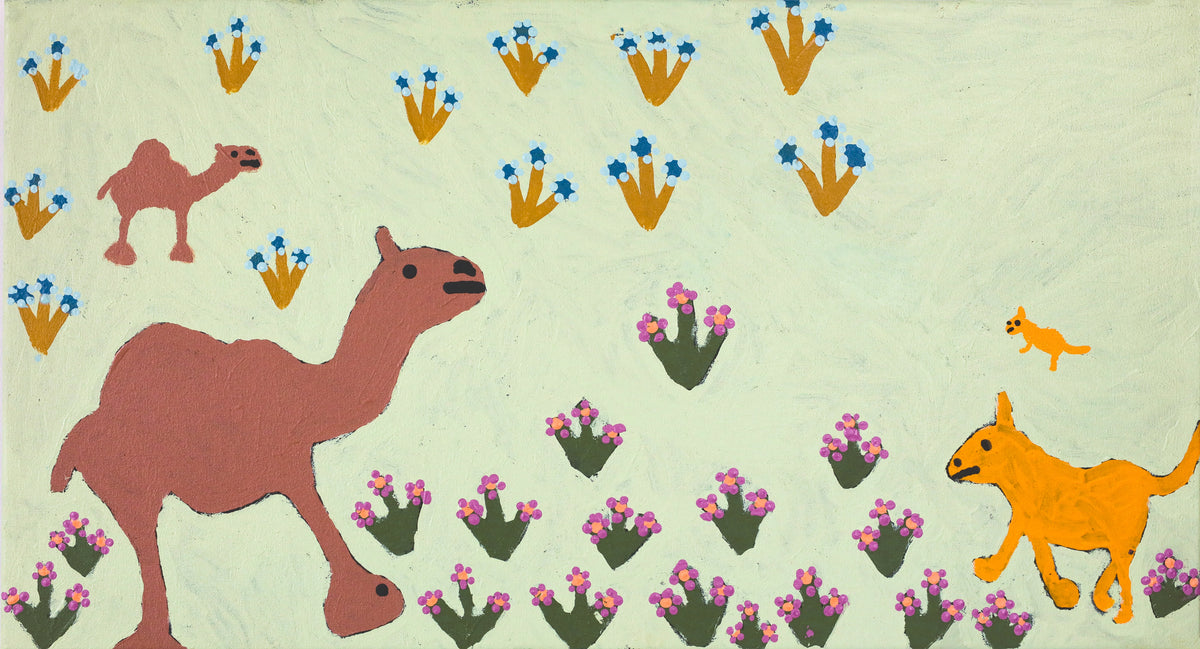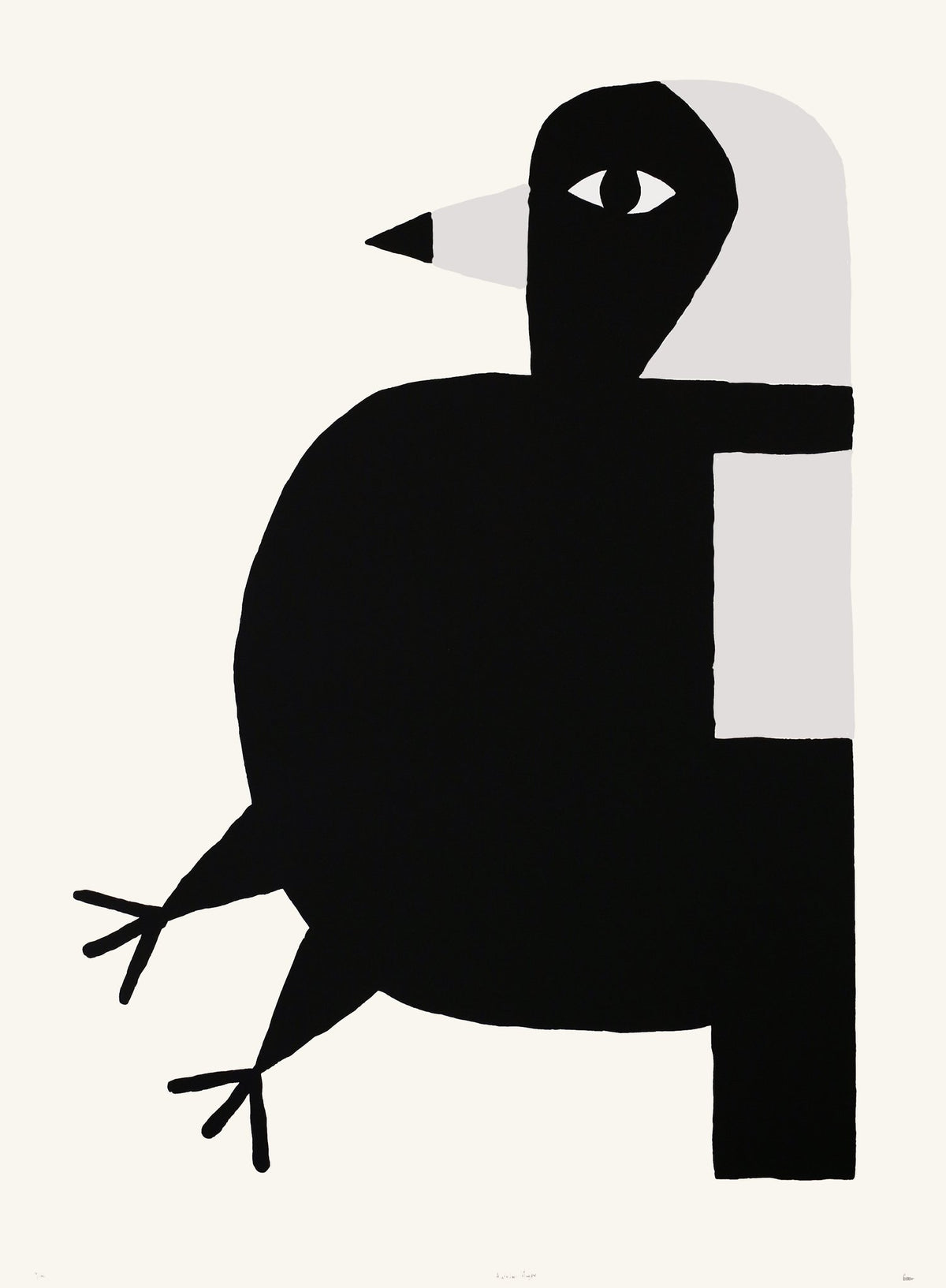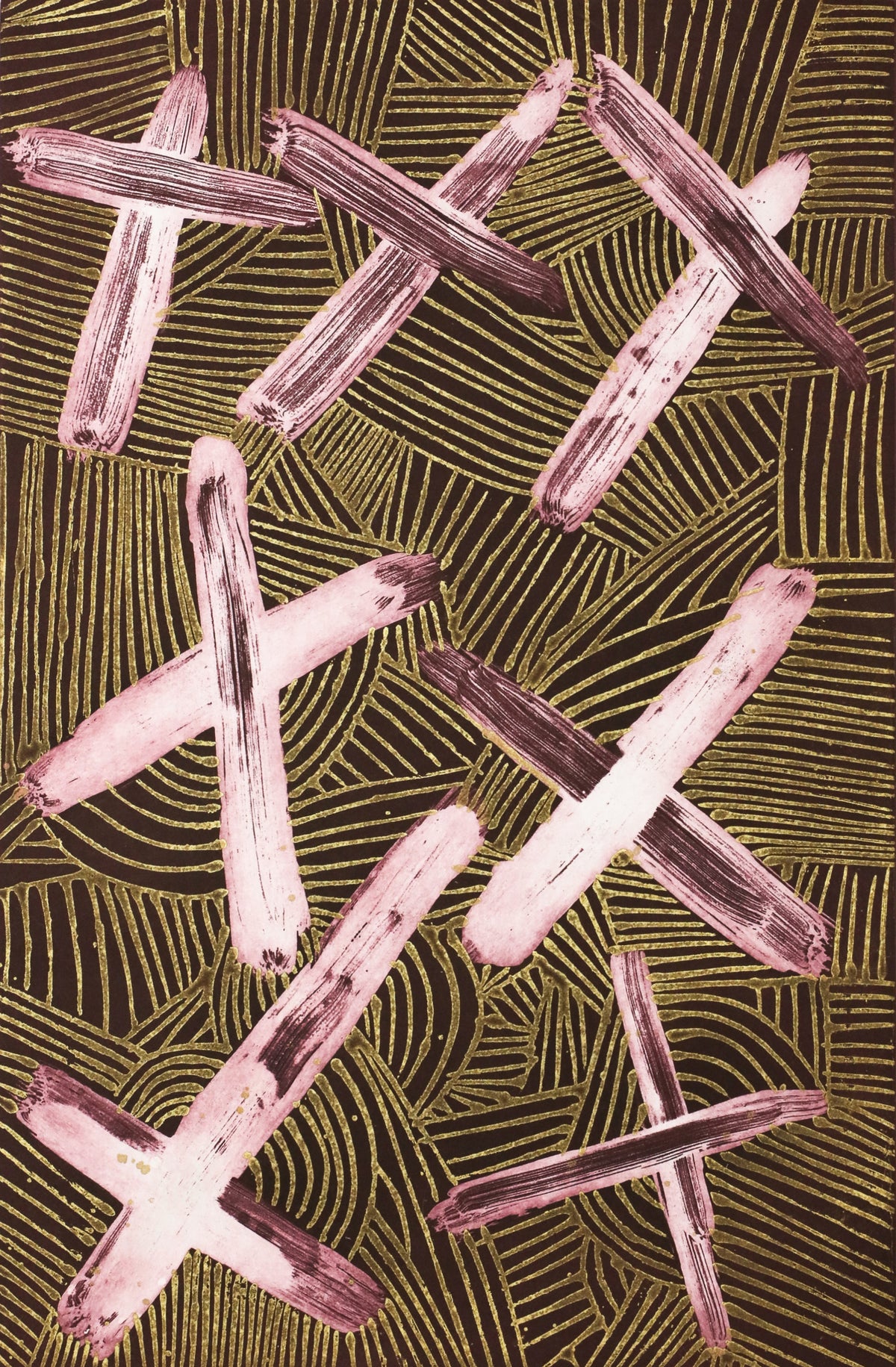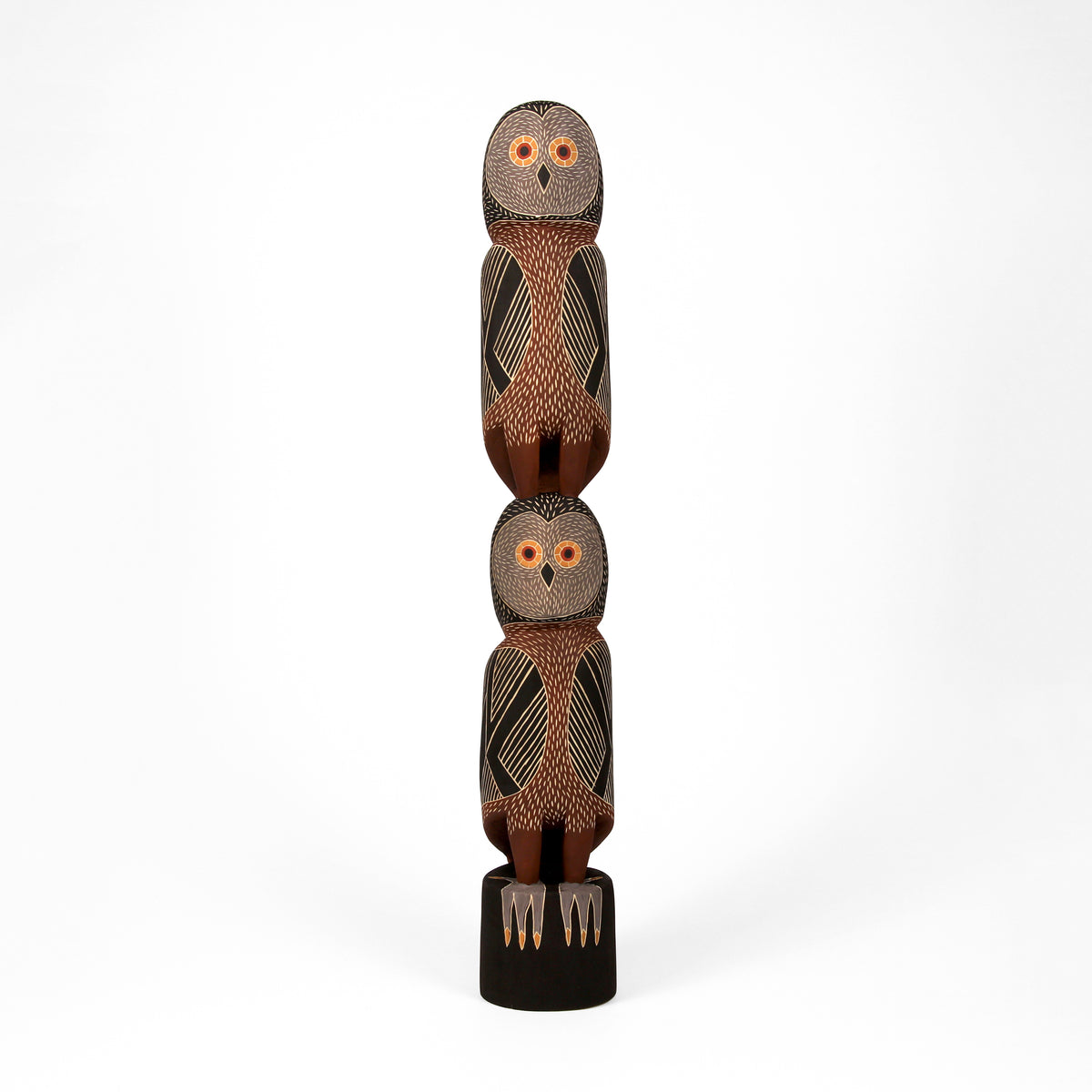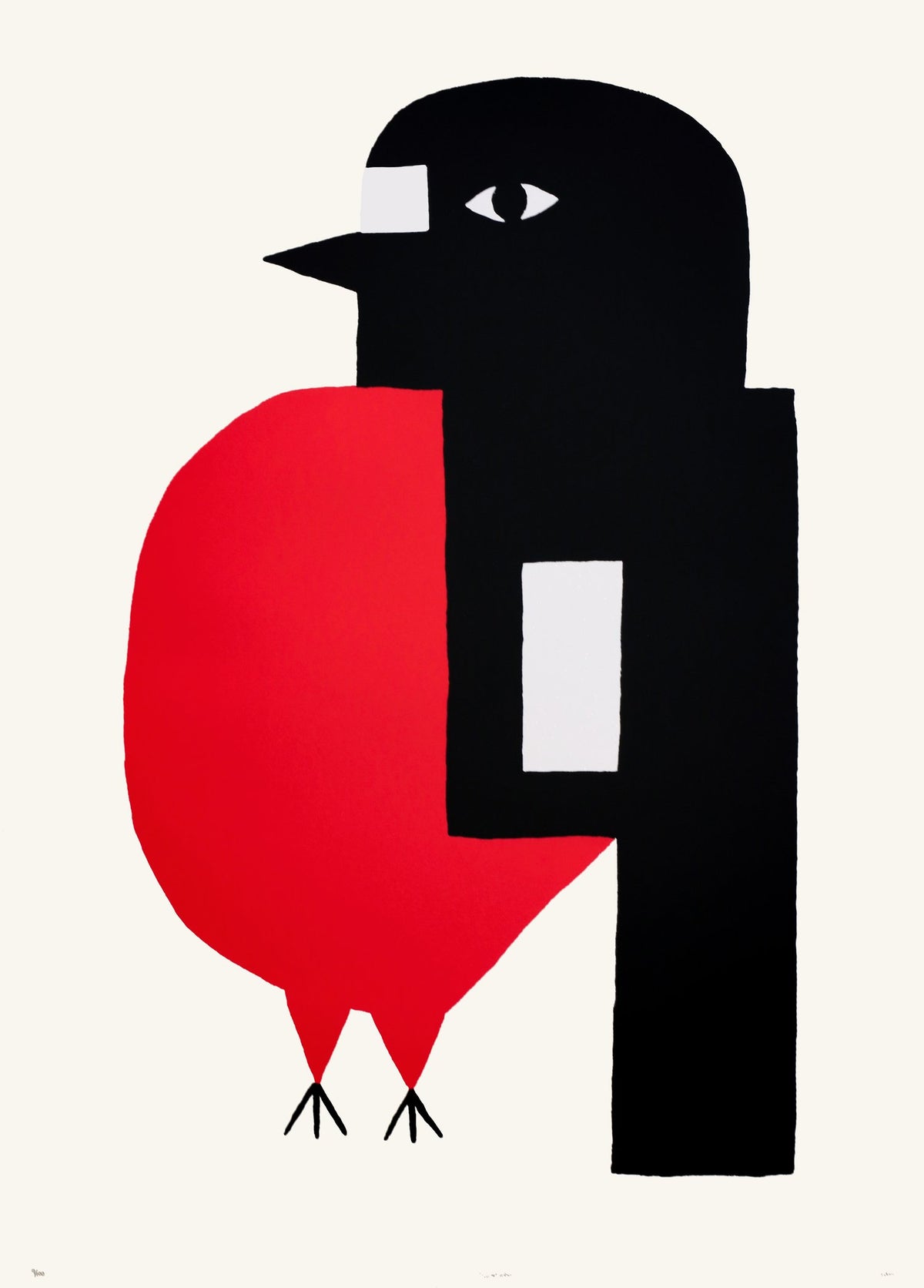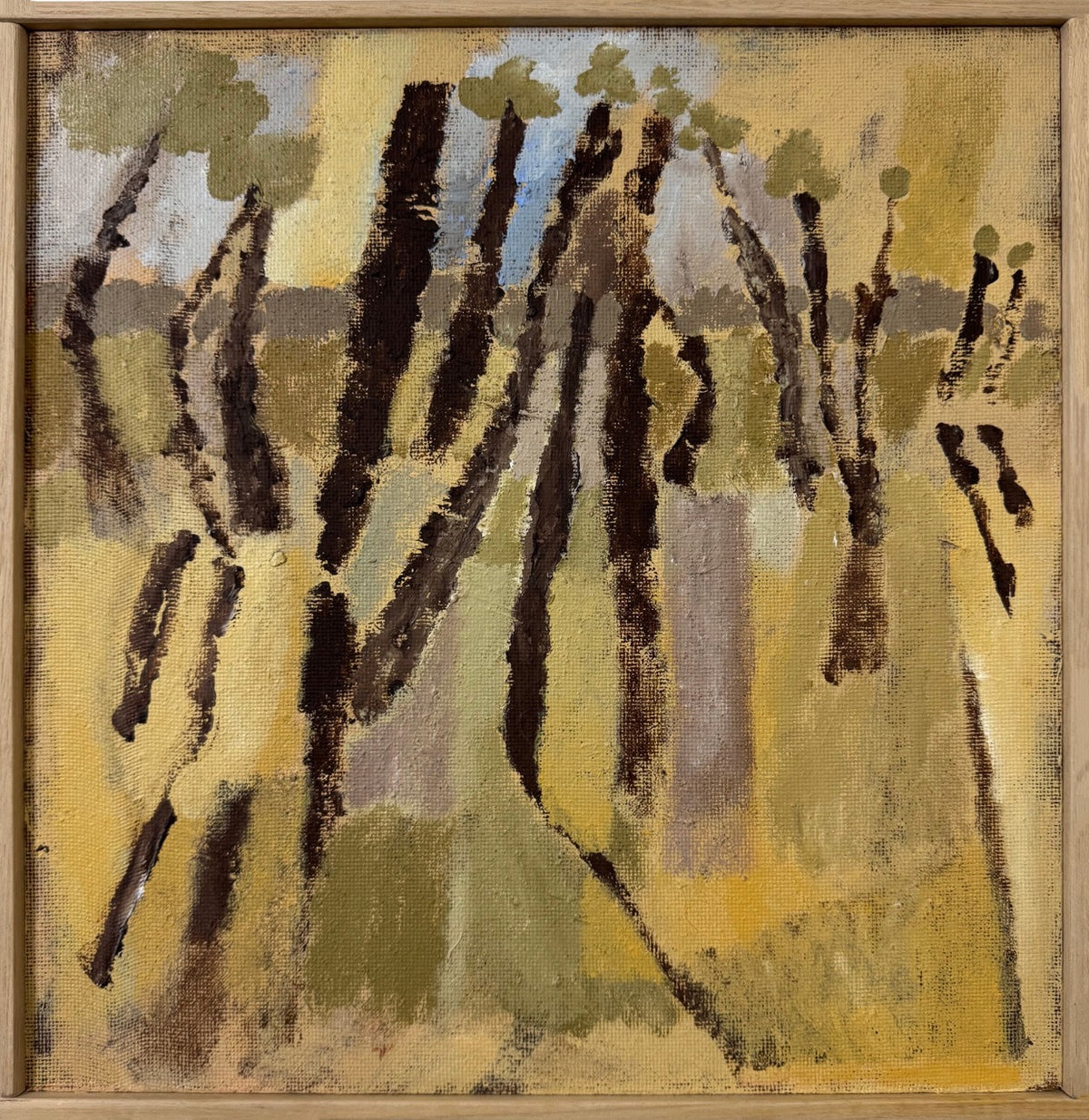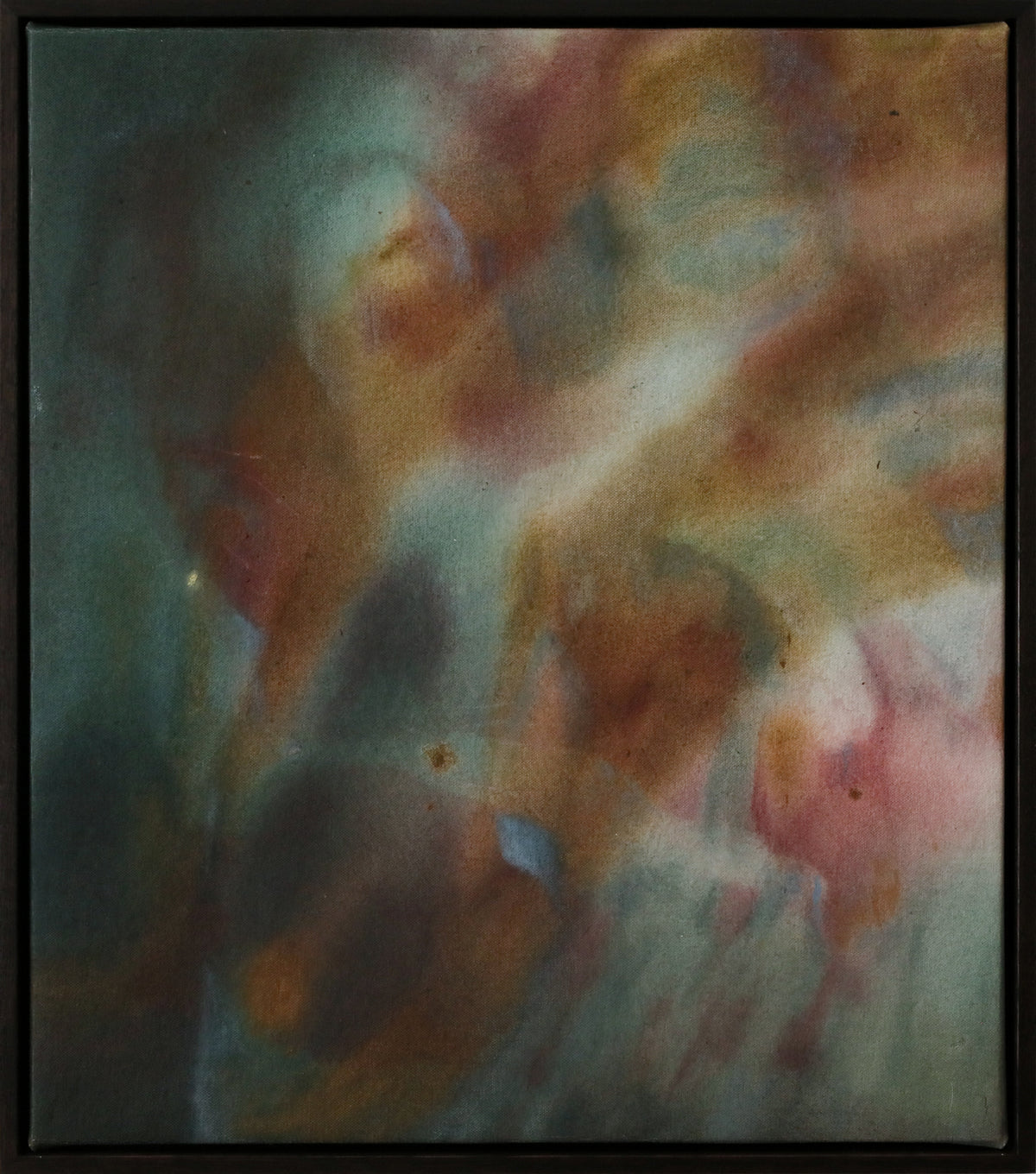Ngurra (Home Country, Camp) 24-40
This painting depicts Mayiwalku’s ngurra (home Country, camp); the land she walked as a young child. Her Country, the Manyjilyjarra region, is located within the central Great Sandy Desert of northwest Western Australia. Features of the landscape are here portrayed aerially with geographical familiarity, including tali (sandhills), warta (vegetation), and the many life sustaining water sources known intimately through both real life experience and the recounting of jukurrpa (dreamtime) narratives.
"My name Mayiwalku. I’m pujiman (nomadic desert dweller). [I had] no clothes, nothing. Me Karimarra (skin group). My daughter Milangka, mummy Milangka, daddy Purungu. [I was] born long way [away] – Ngarurr I been born. He [they] been coming back [with me], mummy and daddy. He [they] been bringing little one- me. He [they] been walk around, go round.
Walking, walking with me. Me baby, eating sand! (laughs) My daddy (motions her father hitting her hand). I been big one (the eldest child). My sister Mulyatingki she told me “May you cheeky one! ” I been mujarri (run away), me. I been hit him, my sister. She been crying, telling my mummy. She been hit me then. My daddy always gone long way, hunting marlu (kangaroo) and pussy cat. Get him with a spear. Good feed. He been bring them and cook ‘em. I been get married in Warralong. My nyupa (husband) finished now. Good man. Big one!
I’m a single now. Too much children! Dennis, Sally, Pauly, Charlie, Arnold, Doreen and Sandra. My daughter Doreen I been get him (gave birth to) near to Jigalong. All the boys [were born in] Karntimarta, Warralong. In Warralong painting, painting. No fishing – no car! Only painting, painting every day! Yuwayi (yes)!"
Mayiwalku was born in the desert at Ngarurr soak in the 1940's. She is the eldest sister of fellow artsits Nancy Nyanjilpayi Chapman, Mulyatingki Marney and Marjorie Yates (dec.). As a child and through to young adulthood, Mayiwalku travelled through her parents’ Country with their family. This region encompassed the areas surrounding Punmu, Karlamilyi River and Kunawarritji. Following the death of their parents, the sisters continued to travel in the desert alone, though at times they would meet and travel with other family groups. When Mayiwalku’s family saw white people for the first time, they hid from them in a cave until nightiall. With the construction of the Canning Stock Route in 1910, they increasingly came into contact with European and Martu drovers travelling along the Route. Finally, following an extreme and prolonged drought, Mayiwalku’s family walked into Balfour Downs Station, where they were collected by mission staff and taken to Jigalong Mission. They were one of the last families to leave the desert. Mayiwalku lived and worked for many years at Jigalong mission, eventually moving with her five children to Warralong, where she continues to live today with her children and grandchildren.
This piece is sold unstretched.
If you would like us to arrange stretching, please get in touch. Please allow 3-4 weeks for this piece to be stretched.
SHIPPING
Brunswick Street Gallery would be pleased to arrange a quote for shipping if you are unable to collect directly from us.
Please be advised that oversized and/or fragile artwork or artworks being sent to remote areas may incur additional shipping costs.
FLEXIBLE PAYMENT
Afterpay, Laybuy
EXHIBITIONS
Artworks purchased from current exhibitions will be available for collection or shipping after the exhibition has ended.
–


